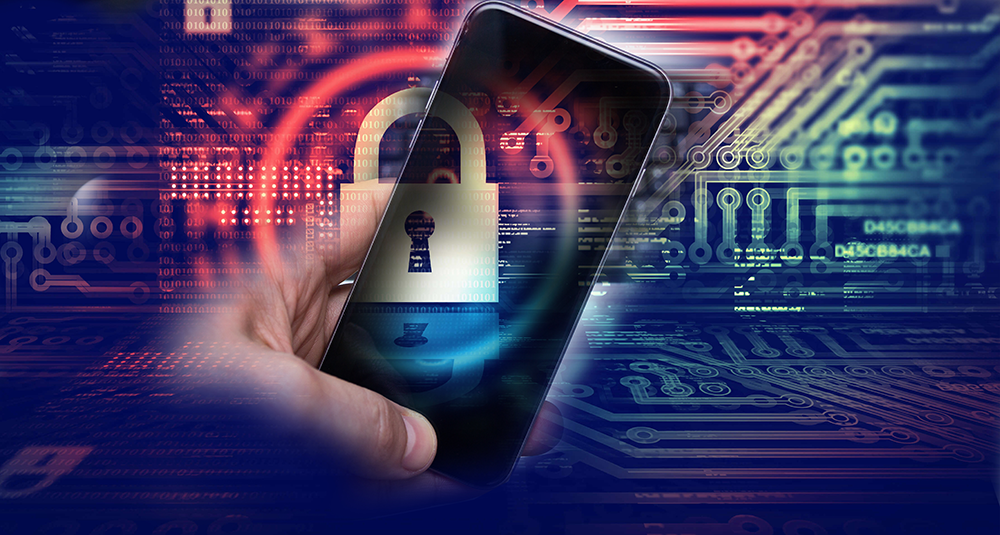Law firms are no longer relegating mobile devices to mere communication tools – these devices have become central to improving legal operations, fostering better collaboration, enhancing productivity, and improving client engagement.
However, as the adoption of personal mobile devices continues to rise in law firms, the responsibilities of information technology (IT) departments have expanded to ensure a smooth integration of these devices into daily operations.
Personal mobile devices are rapidly becoming an essential part of law practices, yet managing the use of these devices poses significant challenges and security risks that must be addressed.
Let’s examine the role that IT departments play in managing the use of personal mobile devices in law firms.
Key Responsibilities of IT Departments in Managing Personal Mobile Devices
Implementing Bring-Your-Own-Device (BYOD) Policies
One of the most important aspects of managing personal mobile devices in a law firm is the development and implementation of comprehensive BYOD policies. These policies outline the conditions, restrictions, and guidelines for employees to safely use their mobile devices for work-related tasks and access firm records.
IT departments are responsible for crafting BYOD policies that strike a balance between allowing personal devices to increase productivity and minimizing security risks. BYOD policies often include device and operating system requirements, allowed applications, guidelines on device use, and procedures in the event of a lost or stolen device.
Establishing Mobile Device Management (MDM) Systems
To effectively manage personal mobile devices in the workplace, IT departments must implement MDM systems that provide control over the mobile devices connected to their network. MDM systems enable IT personnel to monitor device usage, enforce BYOD policies, manage applications, and remotely erase or lock devices in case of loss or theft.
Implementing these systems not only safeguards sensitive data but also simplifies administrative tasks related to the management and support of the various devices that employees bring into the firm.
Ensuring Data Security and Privacy
The sensitive and confidential nature of data handled by law firms makes data security and privacy critical factors in managing personal mobile devices. IT departments must adopt robust encryption methods and secure connections to protect data on mobile devices, as well as implement two-factor authentication (2FA) and strict access controls to minimize unauthorized access.
Regular security audits and training employees on cybersecurity best practices also fall to the IT departments in ensuring the safe and responsible use of personal mobile devices within the law firm environment.
Balancing User Experience and Security
When managing personal mobile devices, IT departments face the challenge of maintaining a user-friendly experience while enforcing strict security measures. Striking the right balance is crucial for ensuring employees embrace and adhere to BYOD policies and security practices. IT departments should focus on providing employees with the necessary tools and support in using their personal devices, while continuously refining security measures to avoid hindering productivity.
Keeping up with Technological Advancements
As mobile technology continues to evolve, IT departments must stay abreast of new developments and trends to ensure they are supporting the latest devices and capabilities that employees may utilize. Keeping up with technological advancements also involves staying informed about the latest security threats and vulnerabilities, implementing appropriate security updates, and adapting the firm’s policies and practices accordingly.
Summary
The role of IT departments in managing personal mobile devices in law firms has become increasingly important as the legal industry experiences dramatic increases in the adoption of mobile technology. Through the implementation of comprehensive BYOD policies and MDM systems, the enforcement of robust security measures, and the continuous fine-tuning of the user experience, IT departments are integral in overseeing the responsible and efficient use of personal mobile devices in law practices.
As challenges continue to emerge and opportunities arise in the rapidly evolving digital landscape, it will be crucial for IT departments to stay agile and innovative, ensuring the legal profession benefits from the power and flexibility of personal mobile devices while upholding the highest standards of security and privacy.
WCA Technologies can help — call or contact us today.
Related:

